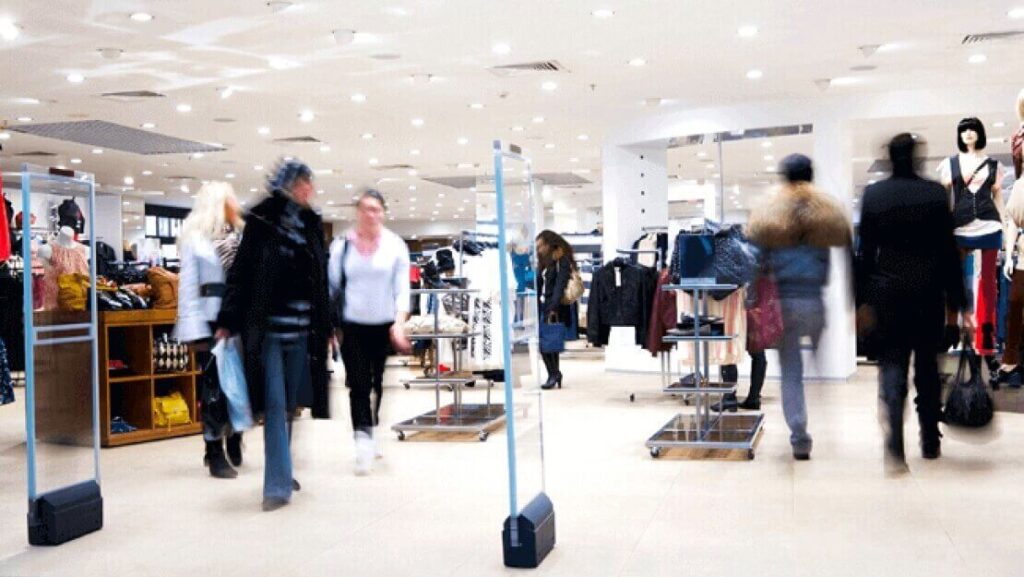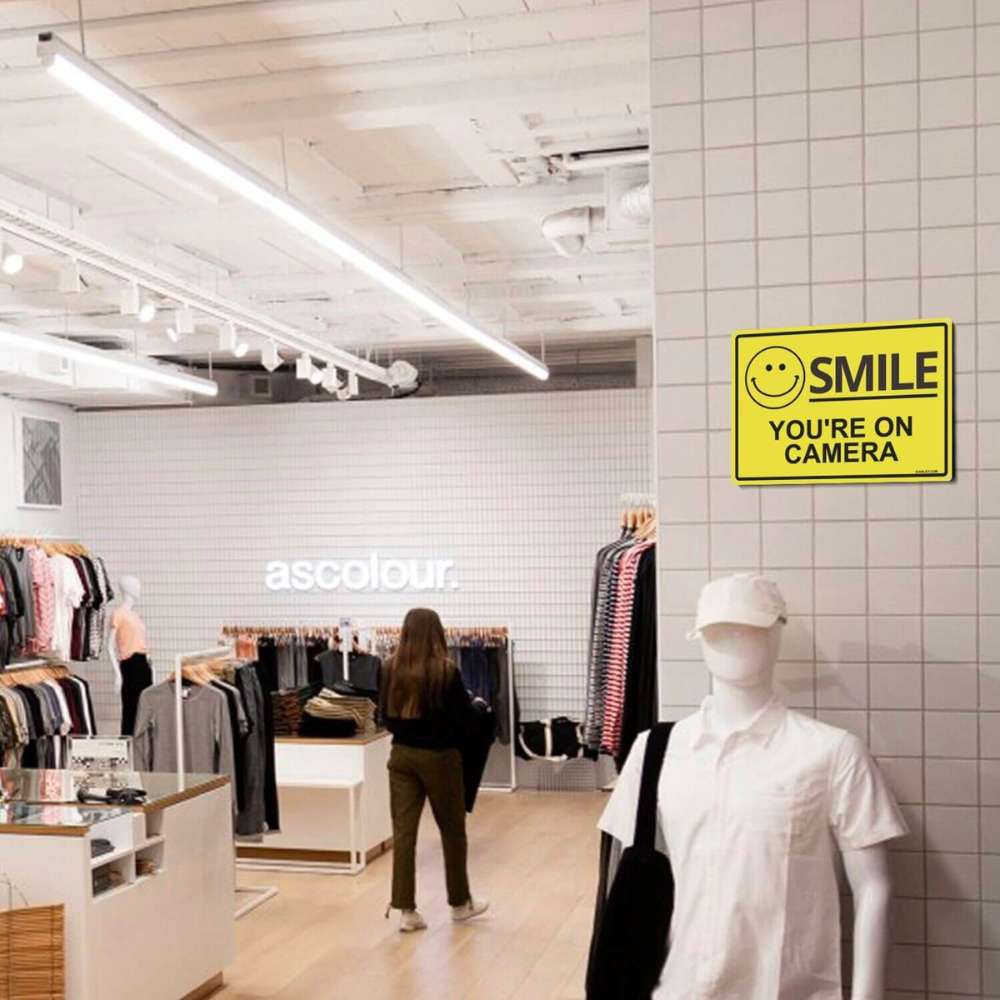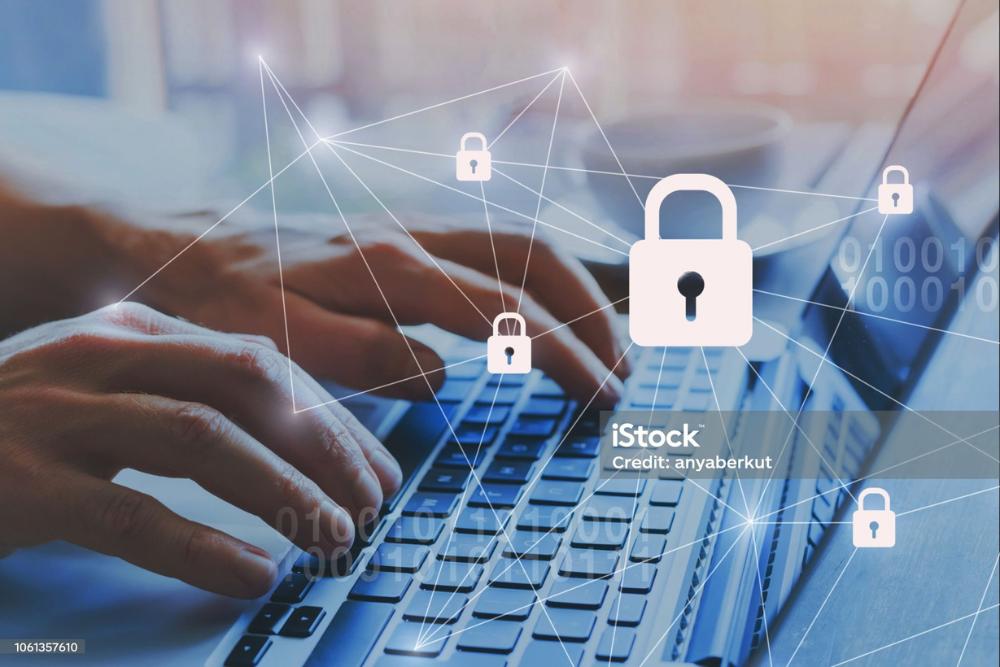Creating a store that is safe for your staff and secure for your products is an important part of managing a retail store. And that’s just the physical storefront. Today, most brands also operate an ecommerce shop and have to take steps to protect their site from data breaches and cyber-attacks.
In this guide, we will look at all things retail security, exploring exactly what it is, why it’s so important, and tips for creating a more secure store and online shopping experience.
What Is Retail Security?

Retail security is important for protecting both your inventory and staff.
Retail security is every measure a business takes to protect its products from theft, its staff from unsafe situations, and its ecommerce store from fraud or cyber-attacks. This can be anything from installing security cameras to properly training your staff—any actions that are designed to enhance the security of your store.
Why Is Retail Security Important?
Retail businesses experience theft, data breaches, and unsafe situations all the time. Here are a few of the top reasons why you should invest in the security of your retail store and the benefits strong retail security can have on your business.
- Save money: Preventing items and data from being stolen is one of the best ways to protect your profits and, in turn, save you a lot of money. In fact, according to research from Zipdo, a data breach incident in the retail sector costs businesses an average of $2.5 million.
- Maintain consumer trust: When a customer shops with you, they want to know that they are in a safe environment and that their personal information will be secure. In fact, 64% of shoppers say they are unlikely to return to a business that experienced a financial breach.
- Retain staff: Creating a safe working environment for your associates is part of successful store management. If your staff does not feel safe and does not see you taking steps to ensure their well-being, they will look for other safer places to work.
- Prevent employee misconduct: While you never want to create an accusatory work environment, if you have procedures in place to prevent fraudulent discounting or meddling with inventory numbers, you will help prevent staff from breaching your store security.
- Personal peace of mind: With retail security measures in place, you won’t have to fret every time you are out of your store and can rest assured that your business is safe.
- Save time: If you have a secure store that does not experience loss, you won’t have to waste time trying to identify where a situation went wrong or how you lost inventory.
Retail Security Tips
Click through the sections below to explore tips for improving your retail security both in-store and online.
Theft accounts for two of the three ways that businesses experience inventory shrinkage. In order to have an effective retail security strategy, you need to take measures that prevent theft.
Inventory shrink: The difference between the amount of stock you expect to have and the actual stock levels you have on hand. Shrink (or shrinkage) can be attributed to three main causes: shoplifting, employee theft, or clerical errors.

Signage is an effective way to deter thefts.
Consider the following theft prevention strategies:
- Utilize signage: Display clear signage to deter potential thieves, reinforcing that surveillance is active and retail theft will not be tolerated.
- Promote employee awareness: Train your management and staff to identify, report, or, if safe, intercept thieves.
- Orient your cash wrap toward the exit: Be sure there are always eyes on your store exit by facing your cash wrap towards the door.
- Consider a business security system: Comprehensive kits come with cameras, door alarms, motion detectors, and other tools specifically for retail stores to enhance security and offer real-time access to your controls.
- Tag with RFIDs: Add radio-frequency identification (RFID) security tags to your merchandise so you always know when an item is leaving the store before being purchased.
- Input access controls: Prevent employees from tampering with your books by adding access controls to sensitive information.
- Enhance your POS system security: Use data encryption, permission and access controls, discretion towards third-party apps, programs, or integrations, and compliance with security standards like the Payment Card Industry Data Security Standard (PCI DSS) to keep the data on your POS system secure.
Read more tips on how to prevent retail theft. Also, learn to calculate inventory shrink and ways to prevent it with our guide to inventory shrinkage.
In addition to keeping your products safe from theft, a key part of retail security is maintaining a safe store environment for both you and your employees. Here are some tips to improve security for stores.

Train your staff so they know what to do in an unsafe situation or when they see theft.
- Train your staff: Give your employees protocol for dealing with disruptive shoppers, thefts, or unwanted visitors. This should include a designated safe area where employees can go if they are uncomfortable, permission to close the store and get assistance, conflict diffusion training, and posted phone numbers for security or police.
- Post helplines: Include written and virtual copies of various helplines (such as local security, management’s personal line, and police) so your employees can access them without having to search. I would recommend keeping one set of phone numbers at the register, one in the staff room, and another on your store computer.
- Have disaster protocols: Keep plans for hurricanes, tornadoes, fires, earthquakes, etc. posted where employees can see them, and be sure to include natural disaster and fire training in your onboarding procedures.
- Maintain an open line of communication: Let your staff know that you are on their team to keep them safe and that their security is your top priority. Ensure they understand that taking action when they feel uneasy will never be punished and they can turn to you for support.
- Promote non-intervention: Let your staff know that you do not expect them to intervene and defend the store from theft or disruption. The number one priority is staying safe, and the best way to do that is to not get involved and to report an incident later.
- Keep a clear line to the exit: Be sure that no matter how you are merchandising your store, there is always a clear path to the exit in case of a fire or other emergency.
- Provide protection: At my store, we kept a small can of mace behind the counter in case of emergencies. While it was never used, it provided safety and peace of mind. But remember that mace or other weapons cannot be used against a patron unless there’s a real threat of violence or bodily harm. Plus, it’s outright illegal to conceal in some states. Be sure to research and abide by your local laws.

Using secure payment gateways, ecommerce platforms, and POS systems is a great start for keeping your customers and business safe online.
While online security threats might not look the same as those that haunt your store, ecommerce security is extremely important to your overall retail security plan. Here are some tips for enhancing your online security for your ecommerce store.
Did you know? Deloitte found that 91% of organizations reported a cyber security breach in 2022, and those with less mature cyber security protections experienced 10 or more attacks (21%) vs organizations with more mature security (13%).
- Use strong passwords: Keep your sensitive accounts secure by choosing strong passwords that are combinations of letters, numbers, and symbols, or a combination of random phrases, and reset those passwords on a quarterly basis (at least).
- Limit staff access to sensitive data: Ensure staff accounts are secure by restricting their access to confidential information, preventing potential hacker vulnerabilities.
- Use two-factor authentication (2FA): Make it so that any sensitive information is harder to access by locking it behind two-factor authentication with your personal device.
- Use a firewall: Install a firewall (a digital barrier that screens and manages network traffic) protecting your site from potential data breaches or malicious code.
- Use a trusted payment gateway: Payment gateways encrypt customer financial and personal information to keep it safe from breaches. Trusted payment gateways are among the most effective ways to maintain secure payment systems.
- Stay up to date with site updates: When you perform a system update, there is often a new layer of security being added or an action being taken against a threat. Keep your site up to date to ensure your security is as high as it can be.
- Invest in ecommerce insurance: In the case of a breach, you want to be protected. There are even insurance plans and providers specifically designed for ecommerce stores.
Get more tips to enhance the security of your store with our guide to retail loss prevention.
Retail Security Frequently Asked Questions (FAQs)
Click through the questions below to get answers to your most frequently asked retail security questions.
Yes, small businesses should practice retail security. Theft and fraud are not isolated to large companies, so small businesses should also create store practices and invest in security technologies to make their stores more secure.
There are free retail security methods including performing regular inventory counts, having thorough closing procedures, training your staff to detect and intervene on suspicious activity, and implementing access controls on your POS.
How much you should invest in retail security will largely depend on the extent of the security risk your business faces. You will want to weigh how much you lose to poor security and invest proportionally to those losses.
It can be tricky to detect suspicious persons, but some telltale signs include customers who seem jumpy, people who search for security cameras upon entry, long stints in dressing rooms, people carrying large empty bags, and other cagey behaviors.
Bottom Line
Retail security is a top concern among modern retailers—both in-store and online. With proper mitigation, you can keep your retail store safe for your staff and your products. There is a lot to be gained from good security in retail, including boosting your sales, but at the end of the day, there is nothing more important than creating a safe work and shopping environment for everyone to enjoy.